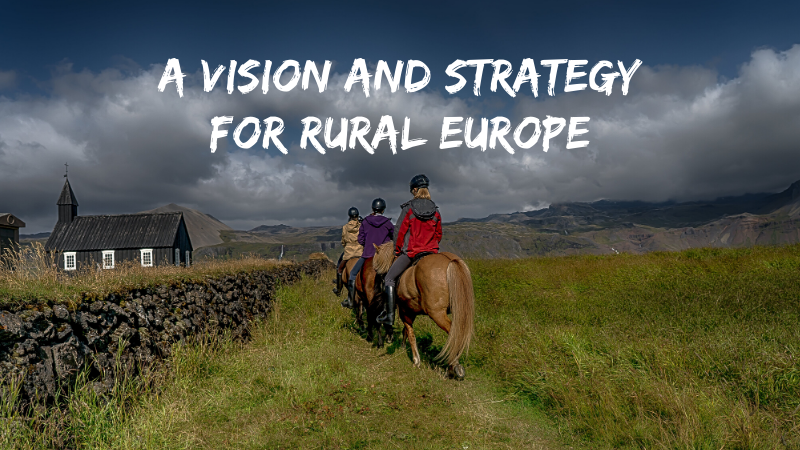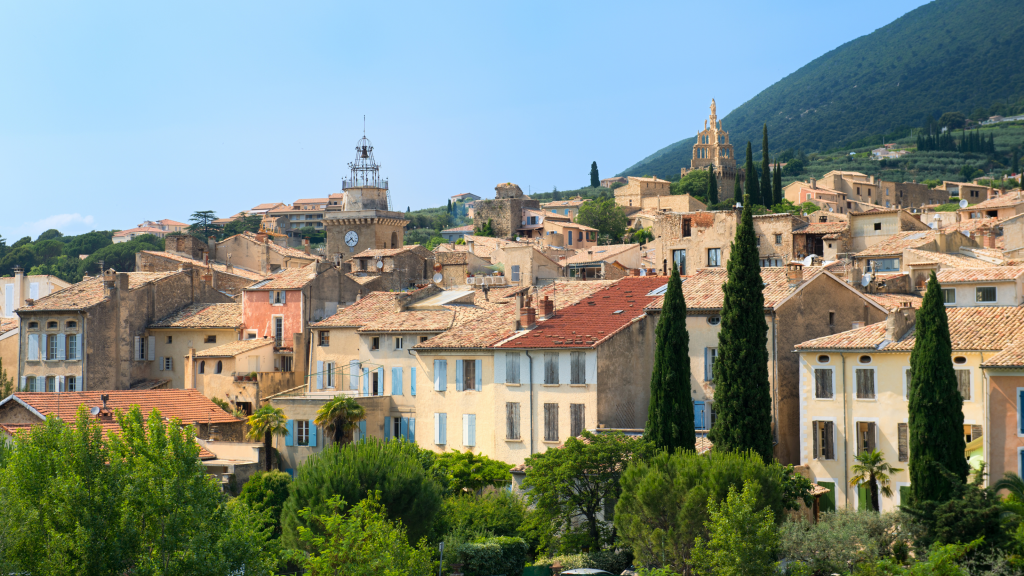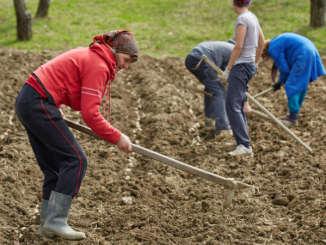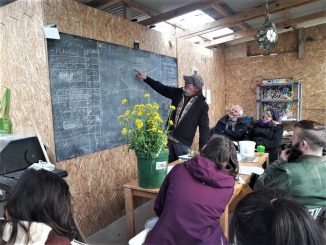This is an edited and expanded version of a presentation by Hannes Lorenzen at a LEADER Regional Conference in Sweden on 06/10/2020. Here Hannes Lorenzen gives his insights into the Commission’s current rural vision process, what led to it, what other processes are driven more by civil society, and how we can all work with the European Green Deal and other initiatives to help rural areas blossom.
What is a Long Term Vision?
Visioning is a stock taking exercise, an imaginative self- empowerment and an expression of individual and collective ambition You start with -where are we today, and where are we going? You continue with – what are we dreaming of, and what do we fear? Then you start creating your space – where would we like to be in 10 or 20 years? And you go deeper into our needs, potentials, aspirations, shortcomings, gaps and hurdles.
Finally it makes sense to watch out for support to make the vision real. So you ask: “What would be the enabling conditions in learning, cooperation, governance, policies and support?”
Rural development visioning, then, is going on all the time. Right now there are two main Rural Vision processes going on in Europe.
One led by rural civil society and rural stakeholders, Rural Parliaments, rural people, and a broad range of alliances active in rural Europe. The other process is led by the European Commission. Both need to relate to each other.
What is Our Long Term Rural Vision for the Coming Ten or Twenty Years?
As Agricultural and Rural Convention ARC2020, we envision people in regions and organisations all over Europe working together to enable rural people to initiate and carry socio-ecological transition. A vision for 2040 is important, but a sustainable and coherent policy change for a just socio-ecological transition must start now in 2020.
We see a strong need to improve EU governance systems and policy leadership, recognizing and strengthening the role of civil society but also of CAP Strategic Plans now being prepared by National Member States. We need more than just a vision which ignores the coming programming period. We need strategic coordination and smaller scale “seed” investments now which create the conditions for larger investments in all socio-economic fields relevant for rural areas. We see the need for a rural taskforce and a rural proofing policy.
The earlier and the more local, regional, national and EU levels engage with each other in building a long term vision and strategy for rural Europe – the better. That is the role of LEADER groups and LAGs. There are entities and initiatives that can help with this, from ENRD to NRNs, to Rural Parliaments and organisations like Ecolise, Forum Synergies and ARC2020 – we are all are bringing dialogue and action ideas together.
ARC2020 has recently contributed in this regard on 7 July with the Conference “A Vision for Rural Europe” at the European Parliament – see links above and below – and we will continue this process in the coming months.
Working Document on “A Vision and Strategy for Rural Europe – Now.”
Why does the EU Commission start the “Long Term Rural Vision Process” – only now?
It seems it is because rural policy is now seen as being more than just a second pillar of the CAP. Formally, there was an internal process going on at EU commission level, with a roadmap feedback period from 22nd July to 9th September.
Now we are in the public consultation stage, which is going on until 30th November. All going well, the Commission plans to adopt an act for mid 2021, which will be called a “Communication on Rural Europe”– the first of its kind on an institutional level.
The Commission’s Long Term Rural Vision 2040 process is developed under the Directorate General “Democracy and Demography”, integrating other elements such as the European Green Deal (EGD) with its Farm to Fork and Biodiversity Strategy. Internal Submissions are up until 7th November. A conference gathering ideas from the public consultation process and the Commission’s internal process will be held in spring 2021, prior to the publication of the already mentioned “Communication on Rural Europe”
The thematic context covers well known challenges like rural depopulation and demographic change, but also access to social and digital infrastructure, and rural economic and social innovation, but also taking into account a range of socio-environmental goods, climate mitigation, biodiversity recovery, the need for a more circular economy and an appropriate response to the covid-19 pandemic.
With Covid 19 there is a strong new dimension to it: – more digitalised and decentralised living and working may attract young people and new rurals, and a re-invention of the rural space.
Read: RESEARCH FOR AGRI COMMITTEE The upcoming Commission’s Communication on the long-term vision for rural areas Context and preliminary Analysis
Could the Ambition for a Rural Vision Lead to Better Coordination of Resources for Rural Development?
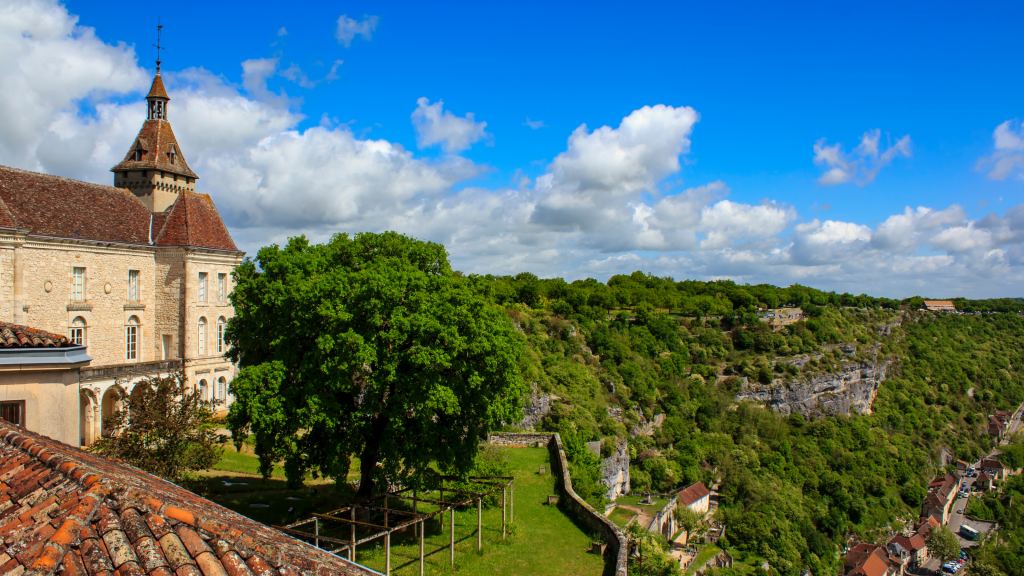
EU Institutions are aware that we are facing multiple, interlocking crises, with Covid-19 just being the latest. Commission President Usula von der Leyen showed ambition with the EU Green Deal. She called it “Europe’s Man on the Moon Moment”, including policy strategies like farm to fork, biodiversity, circular economy, just transition and eight more formal initiatives.
The Commission’s rural vision process involves 3 General Directorates (DGs): Democracy and Demography. Agriculture, and Cohesion. The Farm to Fork strategy involves 5 different DGs: DG AGRI, DG ENV, DG MARE, DG SANTE and DG TRADE. This is an innovative way to work together within the Commission.
It’s fair to say too that with the Green Deal Proposal the Commission has thus been far more ambitious than the Council of Ministers and even the European Parliament, as regards funding and the status of the ambitious targets. This has intensified in recent weeks too, with Council and parliament settling on their positions. However, the flexibilities requested by member states for their National Strategic plans may also provide opportunities for rural actors such as LAGs, LEADER companies, EIPs and others to engage at the national level.
What is the European Green Deal all about?
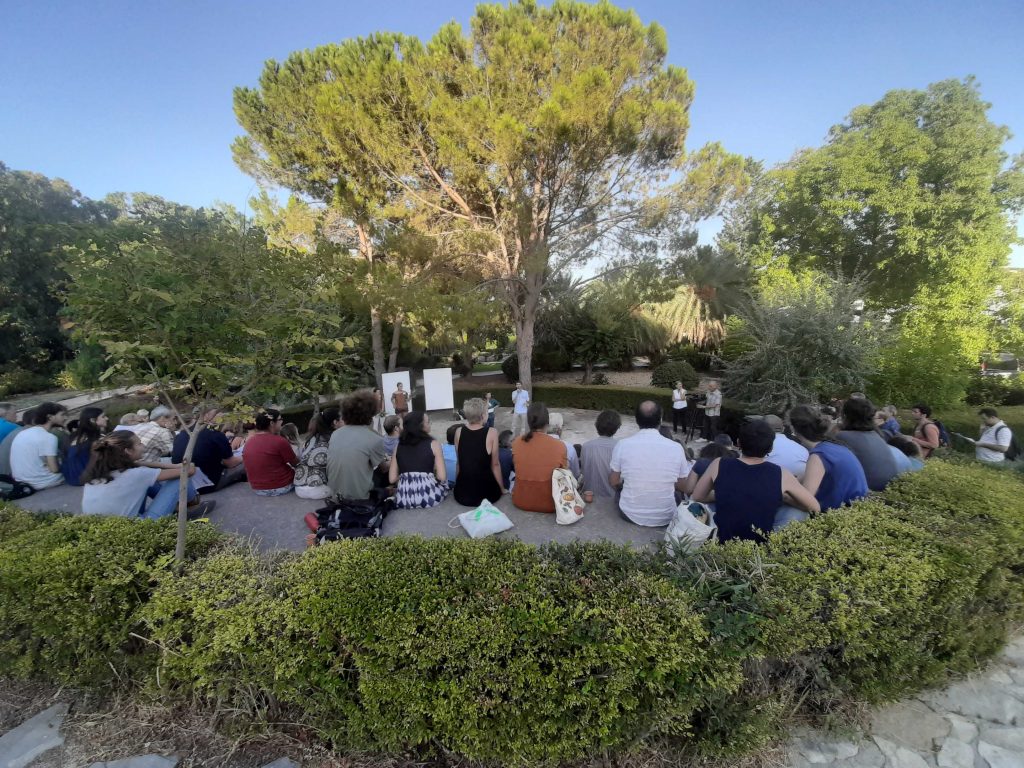
Officially, the European Green Deal provides an action plan to boost the efficient use of resources by moving to a clean, circular economy and to restore biodiversity and cut pollution. The plan outlines investments needed and financing tools available. It explains how to ensure a just and inclusive transition.
The EU aims to be climate neutral in 2050 with a European Climate Law to turn this political commitment into a legal obligation.
Reaching this target will require action by all sectors of our economy, including
- investing in environmentally-friendly technologies
- supporting industry to innovate
- rolling out cleaner, cheaper and healthier forms of private and public transport
- decarbonising the energy sector
- ensuring buildings are more energy efficient
- working with international partners to improve global environmental standards
The EU will also provide financial support and technical assistance to help those that are most affected by the move towards the green economy. This is called the Just Transition Mechanism. It will help mobilise at least €100 billion over the period 2021-2027 in the most affected regions.
All of this is of course, dependent on how CAP negotiations in Trilogue go, and how the Commission reacts to the Council and Parliament positions in the CAP negotiations. Finally, when Member States present their CAP Strategic Plans, the Commission will be able to assess and return them.
How can the Rural Vision Process Interact with the EU Green Deal?
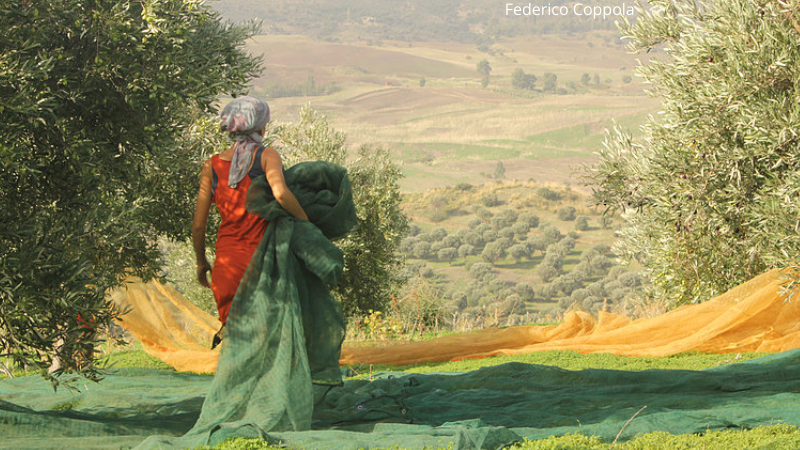
Rural areas have unique opportunities to contribute here. EU Green Deal has thematic areas which include farm to fork and biodiversity strategies (which also includes forestry and digitalisation), and other areas (see annex page 7) ENRD Scoping Paper European Green Deal including circular economy, just transition, climate law, energy integration and energy directive renewals. Indeed the Long Term Vision for Rural Areas consultation itself is considered under the overall EU Green Deal frame, as EU strategies and plans. These fields of action have dedicated budgets as well as significant CAP and recovery funds for integration.
CAP at least is a quite developed part of the EU’s functionality. With an ambitious reform it could potentially give us more tools, supports and opportunities for rural agri-food and forestry.
Moreover, the CAP Strategic Plans – which are being written by member states as we speak – need to integrate elements of the EU Green Deal such as Farm to Fork and Biodiversity Strategy. To a significant extent, all CAP objectives relate to rural Europe, from farmer income to climate, landscape, biodiversity and environment. Importantly, “Vibrant Rural Areas” is also one of nine objectives.
As emphasised earlier, during the upcoming trialogues between Commission, Parliament and Council the Commission would amend its own proposals accordingly, to strengthen the coherence between CAP and Green Deal.
LEADER’s Role and Rural Development
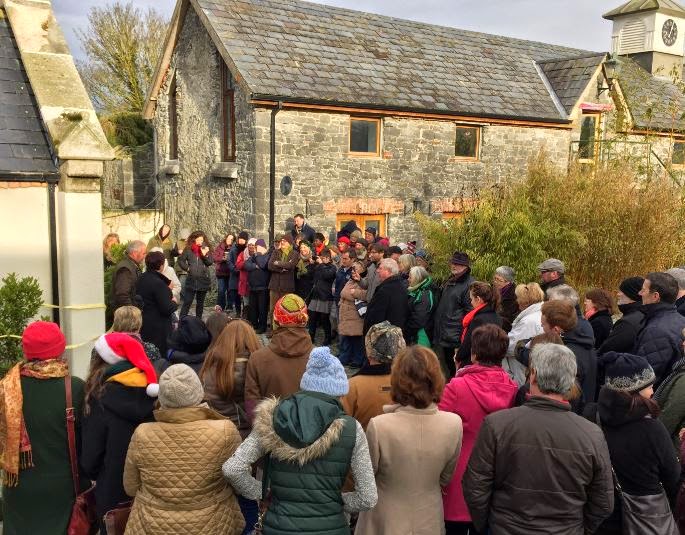
LEADER and CLLD projects and structures should be present and visible in both Rural Vision processes – at civil society and institutional level.
In the new programming period, LAGs should not simply be seen as decentralized offices for distributing small grants but as partnerships for fostering real bottom-up resilience and a transition to a greener and fairer society.
Already the CAP Strategic Plans currently being formulated will need to integrate in the EU Green Deal – so the parts of CAP that LEADER relates to, will have this extra layer.
Following the Conference in the European Parliament on our vision and strategy for rural Europe , ARC2020 has highlighted the strategic role of LEADER and CLLD in promoting inclusive structural changes, building community capacity to stimulate innovations as key drivers of a socially, environmentally sustainable and just transition in rural areas.
But we have also stressed that In order to ensure that local development strategies effectively empower local communities make the changes happen as mentioned above, the European Commission and Member States must drastically simplify procedures and reduce bureaucratic burden. They should ensure the use of one lead fund and harmonised one stop shop solutions to improve multi-funded CLLD projects in both rural and urban areas, including harmonised selection criteria and calls, simplified cost options, block exemptions from State Aid Rules, simplified application processes and eligibility conditions for small and civil society projects, and co-funding options for smaller projects by foundations and other agencies).
LEADER and CLLD can enhance imagination and innovation by further supporting and highlighting the needs for socio-ecological transition within rural businesses and communities. This includes social farming, forestry, agritourism, rural enterprise clusters, new rural and potentially digitised livelihoods in all realms of rural societies. The LEADER method can be nurturing rural talents and helping regions develop in a resilient manner – this redoubles in these EU Green Deal Covid times.
The ENRD Thematic Group on Vision 2040 for Rural Europe

ENRD have a very useful dedicated section to deal with how rural and EU Green Deal integrate. There are 35 headline targets/objectives under Farm to Fork and Biodiversity strategies, a full 24 have relevance for the vibrant rural areas objective within CAP reform.
The ENRD analysis adds a further 14 components of the EU Green Deal – eight of these have direct relevance for vibrant rural areas, including this rural vision process, two circular economy initiatives, new forestry strategy, climate adaptation, environmental action plan, clean energy and mobility.
We can suggest that even more can and should be integrated, as holistic thinking as expressed in part through policy coherence, is required to avoid unintended negative externalities and consequences.
Rural too is more than farming and forestry – its a place where people live and work in these but also other sectors. This too needs to be integrated into our thinking of how best to utilise the EU Green Deal.
A transition infrastructure, an ecosystem of innovation needs to be built for the changes we need to integrate into rural areas.
ENRD Scoping Paper on European Green Deal and Rural
But we call for still more vision and ambition – the ENRD analysis, for example, does not list promoting diversity in seed varieties as having a rural relevance – yet what sort of socio-ecological transition will be possible in rural areas without seeds well adapted to real farms in real rural areas? Open-pollinated appropriate seed saving endavours, for example enable mixed agroecological farming: this has been acknowledged in the EU Green Deal strategies to increase employment, interest young and new entrants to farming, and boost the vitality of rural regions in so doing. Seed diversity is core to the new organic regulation, and the farm to fork and biodiversity strategies’ targets for 25% organic farming by 2030 is itself acknowledged as contributing to…vibrant rural areas!
Indeed, as can be seen in the new seeds4all initiative which ARC2020 is involved, seed saving hubs are ofer centre for rural innovation, employment, repopulation of rural areas, food sovereignty and general vibrancy.
So the connectivity to and opportunities for rural is, we argue, even broader than it may at first appear.
This is an edited and expanded version of the content of a presentation by Hannes Lorenzen at the LEADER Regional Conference Sweden 06/10/2020. For more from European Leader Association for Rural Development (ELARD) on the rural vision process see the dedicated page here.
Working Document on “A Vision and Strategy for Rural Europe – Now.”
Join Us in Generating a Vision & Strategy for Rural Europe – Now!

